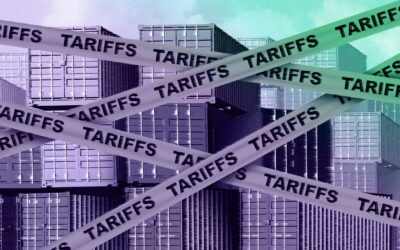August 5, 2024
*As we reach the year’s midpoint, Capstone is revisiting our sector 2024 predictions and looking ahead to the second half of 2024.
President Biden’s withdrawal from the presidential race has not only heightened the intensity of the election but also raised important questions about the US foreign and defense policy under the next administration. While there is bipartisan agreement on the threat China poses to the US, how Harris and Trump address these risks may differ significantly. This year has seen the Biden administration double down on making necessary but underappreciated investments to confront China economically and militarily (see our 2024 National Security Preview).
The upcoming election is also expected to add more drama. Apart from the election fever, the regulatory dynamics surrounding Nippon Steel’s acquisition of US Steel are generating significant noise. We believe the pessimism about the deal is overstated, and that it will go through. Meanwhile, the trilateral security agreement between the United States, the United Kingdom, and Australia (“AUKUS”) is likely to create opportunities that investors should closely monitor.
In a recent Q&A, Capstone’s head of National Security Practice, Elena McGovern, provides updates on the remainder of what 2024 holds for underappreciated national security policy.
What do you think was overlooked by the market in the first half of the year that it must pay attention to?
We have been pounding the table on how the market is misunderstanding the regulatory dynamics surrounding the acquisition of US Steel by Japan’s Nippon Steel since the transaction was announced in December 2023. We believe that the US government will approve the merger of these two companies, both by the Committee for Foreign Investment in the United States (CFIUS) and at the Department of Justice, where the transaction is being reviewed on national security and antitrust grounds, respectively.
The noise surrounding this deal, including an extraordinary statement from President Biden on the matter, has drowned out the fundamentals, particularly as it pertains to how CFIUS makes determinations on national security grounds.
We continue to believe that the general pessimism in the market surrounding the deal will dissipate quickly after two expected catalysts in the coming 2-3 months: the first is an agreement with the United Steelworkers that will be the result of arbitration with Nippon Steel. That hearing is scheduled for August 15th and an agreement could come in the weeks following. Second, we expect CFIUS to conclude its work in the early fall, although specific timing is difficult to predict given the classified nature of the process.
What are some emerging opportunities that need to be on our radar?
One emerging opportunity in the US and allied defense space is the impact that the trilateral security agreement between the United States, the United Kingdom, and Australia known as “AUKUS” will have on joint defense-related technology development and market access.
Known as “Pillar II” of AUKUS, the three governments have been busy working on harmonizing their export control regimes to enable “license-free” defense technology cooperation and investment among the three countries. In a matter of months, sharing information, skilled workforce, and market access will all be freely possible when previously it required an export control license. We expect this to create an enabling and active environment for defense tech innovation and investment. As a result, investors interested in the defense technology space should be paying attention.
How will the upcoming elections influence policy and regulation?
The outcome of the election will determine the US government’s stance on its security interests in supporting Ukraine. One potential course is to continue supporting Ukraine in its defense against Russia, while also supporting the deeper integration of NATO allies in Europe, both within and beyond the context of Ukraine.
Alternatively, the US government may suspend military aid to Ukraine and pressure the two countries to the negotiating table (to the benefit of Russian President Putin). That’s just one example of how dramatically the foreign policy landscape could shift.
One area where we expect greater continuity, whether it is a Trump or Harris administration, is on China, as there is broad bipartisan agreement on the threat that China poses to US interests. However, the means that either administration chooses to address those risks are likely to be different. For example, while we would expect both a Trump and a Harris administration to utilize increased tariffs, export controls, and outbound investment restrictions to further “derisk” the US economy from China, we see the Trump administration potentially edging toward economic warfare as the pressure would be ratcheted up farther than where it is at present. A Harris administration would likely seek more stability in the relationship, and while certainly continuing to press these economic levers, would likely be more mindful of unintended consequences and risks of miscalculation.

Elena McGovern, Co-Head of Capstone’s National Security Practice
Read more from Elena:
After Iran’s Strike: What Happens Next
Biden’s Weak and Failing States Problem
Five Underappreciated Near-Term Foreign Policy Developments



























